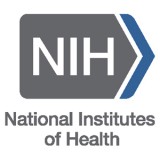NIH-led study to assess community-based hepatitis C treatment in Washington, D.C.
Topics

Officials from the National Institutes of Health and the city of Washington, D.C., launched a clinical trial to examine whether primary care physicians and other health care providers, such as nurse practitioners and physician assistants, can use a new antiviral therapy as effectively as specialist physicians to treat people with hepatitis C virus (HCV) infection. The trial, which will involve 600 adult D.C. residents infected with HCV alone or co-infected with HCV and HIV, also will examine the long-term effects of the treatment.
The study, called ASCEND, is co-sponsored by the NIH’s Clinical Center and National Institute of Allergy and Infectious Diseases (NIAID), with additional support from the NIH Office of AIDS Research. The study is being conducted as part of the D.C. Partnership for HIV/AIDS Progress, a program that aims to reduce the burden of HIV/AIDS and associated diseases, such as hepatitis C, in the District of Columbia.
More than 3 million people in the United States are infected with HCV. If left untreated, the infection can lead to cirrhosis (liver scarring), liver cancer and eventual liver failure. Chronic HCV infections contribute to thousands of deaths each year, and hepatitis C is a leading cause of death for people co-infected with HIV. In the United States, hepatitis C infection is largely centered in urban areas and disproportionately affects minority, low-income and marginalized populations, such as the homeless and people who inject drugs.
In the past, hepatitis C treatment involved long-term use of oral and injectable medications, some of which had unpleasant side effects, including flu-like symptoms and depression. Because of the complexity of these regimens, hepatitis C treatment has largely been provided by specialist physicians, such as infectious disease specialists and hepatologists. New oral direct-acting antiviral drugs may offer more effective, shorter-duration, curative treatments. In October 2014, the U.S. Food and Drug Administration approved a new, once-daily antiviral drug for treatment of hepatitis C infection that combines ledipasvir and sofosbuvir (trade name Harvoni). Gilead Sciences, based in Foster City, California, manufactures the drug and is providing it free-of-charge for use in the ASCEND study.
“The recent advent of direct-acting antiviral medications has offered promising new treatment options for people who are chronically infected with hepatitis C,” said NIAID Director Anthony S. Fauci, M.D. “These therapies have yielded high cure rates in clinical trials led by specialized care teams. The ASCEND study will help determine whether these medications are similarly effective when administered in an urban, community-based setting.”
Led by principal investigator Henry Masur, M.D., chief of the NIH Clinical Center’s Critical Care Medicine Department, and lead associate investigator Sarah Kattakhuzy, M.D., of the University of Maryland’s Institute of Human Virology, the Phase 4 (post-marketing) ASCEND study aims to enroll approximately 600 D.C. clinic patients with HCV infections or HCV and HIV co-infections. Of those enrolled, 350 participants will continue treatment with their current specialist, and 250 participants will be assigned to a primary care physician, physician assistant or nurse practitioner for treatment. All participants will take a daily pill of combination ledipasvir (90 milligrams) and sofosbuvir (400 milligrams) for two to six months. Study volunteers will be treated at 11 D.C.-based clinics operated by Unity Health Care, Inc., and one D.C. clinic run by Family and Medical Counseling Services. Both D.C. health care organizations are active collaborators in the D.C. Partnership for HIV/AIDS Progress.
Participants will be monitored over a 10-year period for short-term and long-term treatment outcomes, including viral response to the drug and evidence of liver damage. The researchers aim to determine whether the type of health care provider administering the treatment influences outcomes. They also will assess the safety of the drug, how well it is tolerated and whether there are differences in outcomes for people infected with both HCV and HIV compared with those with HCV alone. According to the investigators, this study will help advance scale-up of the use of direct-acting antivirals for elimination of chronic HCV infections in certain at-risk groups. The ASCEND study is expected to be completed in 2025.
“This study demonstrates the benefit that research can have on the community,” Dr. Masur said. “NIH, community clinics and the D.C. Department of Health are working collaboratively to reduce the impact of a lethal viral disease, hepatitis C, on the population of our nation’s capital.”
More information about the Study to Assess Community-based Treatment of Chronic Hepatitis C Monoinfection and Coinfection With HIV in the District of Columbia (ASCEND) can be found at ClinicalTrials.gov using the identifier NCT02339038.
NIAID conducts and supports research — at NIH, throughout the United States, and worldwide — to study the causes of infectious and immune-mediated diseases, and to develop better means of preventing, diagnosing and treating these illnesses. News releases, fact sheets and other NIAID-related materials are available at https://www.niaid.nih.gov.
The NIH Clinical Center is the clinical research hospital for the National Institutes of Health. Through clinical research, clinician-investigators translate laboratory discoveries into better treatments, therapies and interventions to improve the nation's health. More information: https://clinicalcenter.nih.gov.About the National Institutes of Health (NIH): NIH, the nation's medical research agency, includes 27 Institutes and Centers and is a component of the U.S. Department of Health and Human Services. NIH is the primary federal agency conducting and supporting basic, clinical, and translational medical research, and is investigating the causes, treatments, and cures for both common and rare diseases. For more information about NIH and its programs, visit www.nih.gov.
NIH...Turning Discovery Into Health®